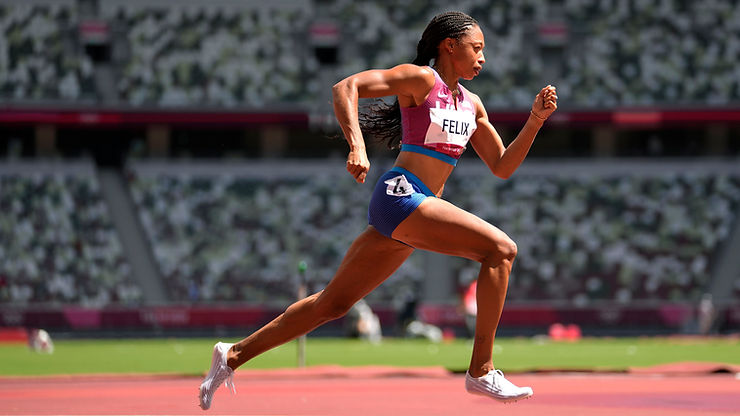By: Richard Huang
In April, American legendary printer Allyson Felix announced that
she will retire at the end of the 2022 season.
Felix came to the public’s view in 2003 when she finished in second
place at the US trials and qualified for her first World
Championships.
At the latest World Athletic Championships in Eugene, Oregon, she
brought a bronze home again in the 4×400 mixed relay.
“It was a night I will cherish. I’ve had such good memories,” she
said. “I know it is time and these guys will carry it on into the future.
I am at peace stepping into this next stage and have tremendous
gratitude for this sport.”
In her two-decade career, Felix has won more Olympic medals than
any other American sprinter in history—eleven medals with seven
golds. She is also the “Greatest-Of-All-Time” in World
Championships, in which she won 19 medals, 13 of which were
gold.
However, it is not only the achievements that she had done on the
track that make her noteworthy—she also fights for women and
maternal rights.
In November 2018, Felix gave birth to her daughter eight weeks
prematurely because she had pre-eclampsia, a serious medical
condition that could potentially be life-threatening to the baby and
the mother, and it is disproportionally prevalent among black
women. This inspired her to raise awareness of maternal mortality.
“After enduring the two most terrifying days of my life, I learned my
story was not so uncommon. There were others like me, just like
me… black like me, healthy like me and doing their best, just like
me. And they faced death like me, too,” she said at the Congress in
2019. “We need to provide women of color with more support
during their pregnancies. There’s a level of racial bias within our
healthcare system that is troubling and will be difficult to tackle, but
that doesn’t mean we shouldn’t.”
Felix also has trouble being a new mother. Despite all of her success,
her sponsor Nike wanted to pay her 70% less than before. She then
wrote an opinion piece in the New York Times explaining the
situation.
“I’ve tried not to show emotion, to anticipate what people expect
from me and to do it. I don’t like to let people down. But you can’t
change anything with silence.”
Months after this article, Nike had announced their new maternal
policy regarding all their sponsored athletes. It promised that the
athletes will get paid higher than usual for 18 months around
pregnancy.
“I’m trying to leave the sport better than I found it, trying to support
female athletes and women in general and fight for more equality,”
she said.











